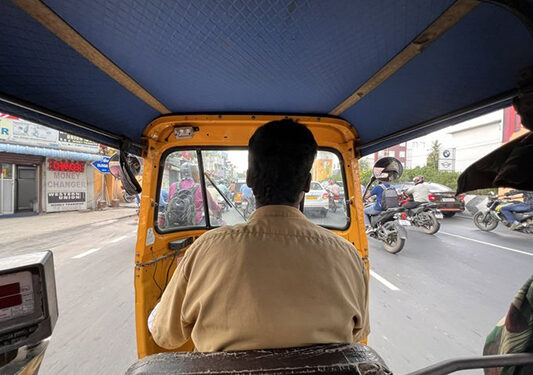NE BUSINESS BUREAU
CHENNAI, OCT 30
The Urimai Kural Drivers’ Trade Union, representing over 5,000 auto and cab drivers across Chennai and Puducherry, has called for the adoption of a SaaS/subscription model for ride-hailing services. The union advocated that this new SaaS based subscription model by few selected ride-hailing platforms has benefited both drivers and customers immensely, as it has improved drivers’ earnings and at the same time has also reduced travel costs for passengers.
- The role of the platform in this model is limited to providing the technology, while the financial exchange is between the driver and the user.
- The divergent rulings from the Authority on Advance Ruling in Karnataka and Tamil Nadu regarding GST liability have created significant uncertainty within the industry
- Last month, Honourable High Court directed the CBIC to engage with stakeholders in the ride hailing industry to clarify GST liability under Section 9(5) of the CGST Act
Zahir Hussain, General Secretary, Urimai Kural Drivers’ Trade Union of Tamil Nadu & Puducherry said, “The traditional commission-based ride-hailing model benefits neither the drivers nor the customers. Also, high commission fees charged by app-based platforms for each ride, combined with reductions in incentive payouts, has led to a decline in net incomes for our drivers. Many drivers are also facing financial strain due to delays in payment processing by these platforms, often resulting in debt and insecurity regarding their livelihoods.”
On the other hand, in the subscription-based model, the Urimai Kural Union states, the drivers make direct transactions with passengers by passing platform commissions, allowing the driver to retain the full fare. It argues that since the financial transactions occur directly between drivers and passengers, ride-hailing platforms should not be responsible for collecting or paying GST on these transactions. The role of the platform in this model is limited to providing the technology, while the financial exchange is between the driver and the user.
According to the driver’s trade union, the subscription-based model yields numerous advantages. With reduced fares for customers and direct payments to drivers, financial stability can improve for drivers, creating a more sustainable livelihood. This arrangement fosters a win-win approach, empowering drivers to manage their finances better and providing passengers with more affordable transportation options. Additionally, it notes that a streamlined subscription model can lead to a decrease in unpredictable ride cancellations, enhancing the overall user experience and increased use of services.
Last month, Honourable High Court directed the CBIC to engage with stakeholders in the ride hailing industry to clarify GST liability under Section 9(5) of the CGST Act. In response to that the Urimai Kural Union has submitted a representation to the Central Board of Indirect Taxes and Customs for being included in the stakeholder consultations ordered by the Karnataka High Court in a case pertaining to levy of GST on such SaaS models. Similar, representations will be submitted to the Chief Minister and the Governor, seeking their intervention in the matter.
The divergent rulings from the Authority on Advance Ruling in Karnataka and Tamil Nadu regarding GST liability have created significant uncertainty within the industry. The union members highlighted that drivers are the ultimate service providers in the ride hailing industry and any decision by the CBIC or GST council will directly affect their livelihood and earning opportunities, thus they should be made part of all such consultations for providing inputs on ground realities. While the Karnataka High Court has granted interim relief to app-based mobility operators, the Urimai Kural Union’s push for inclusion in stakeholder consultations underscores the broader industry need for clear, consistent guidelines. The outcome of these consultations with CBIC could set an important precedent for GST administration in the evolving digital services sector.












